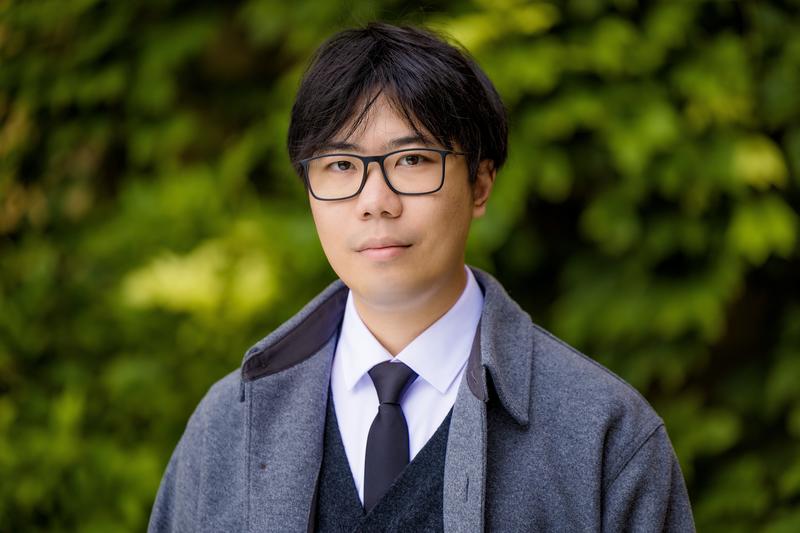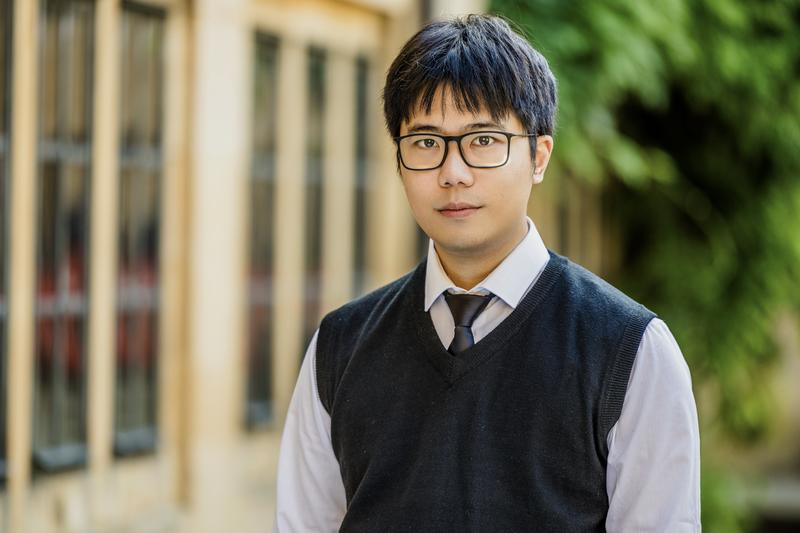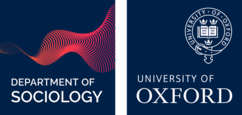DPhil Student Spotlight: Haohao Lei
DPhil Student Spotlight: Haohao Lei
Haohao was an MPhil student at the Department of Sociology from 2021-2023, before starting his DPhil studies as a Clarendon Scholar. Previously, Haohao completed a BSc at University College London. He is supervised by Professor Ridhi Kashyap and Professor Jennifer Beam Dowd.

Why do you study sociology?
The main reason I love sociology is that I have always had “unusual” questions about human society and have wanted to understand how society functions since childhood.
Growing up as an introvert, I’ve often felt somewhat distant from the crowd, which gave me plenty of opportunities to observe rather than participate in human interactions. During my observations, I’m always struck by how similar human beings are, yet how different they can be.
Soon I realised that to understand these similarities and differences, I needed to step outside my narrow personal view and look at human populations from a broader perspective. Sociology allows me to do this, revealing the wonder and greatness within the ordinary.
What first attracted you to the Department?
I was particularly drawn to the Department due to its emphasis on an analytical and empirical approach to sociology. The Department's focus on exploring specific social mechanisms and understanding individual actions and interactions through empirical data, rather than grand theories, resonates deeply with my academic interests.
Moreover, the Department's small size fosters a welcoming and friendly atmosphere, making it an ideal environment for intellectual growth. After two years of MPhil study, I already feel like a valued member of this vibrant academic community.
What do you enjoy most about studying in Oxford?
I appreciate that the scholars in this Department have a wide range of interests, from the mafia to climate change and sociogenomics. When I have random “strange” questions, it's always easy to find experts who can provide satisfying answers.
I also appreciate the course design, which emphasises scientific methodology rather than only focusing on results and theory.
During my MPhil study, I worked on the Replication Project, which required us to replicate a published research paper. This experience taught me the importance of falsification and open science. Additionally, it gave me, as a young researcher, the opportunity to see how the scientific community operates and how our knowledge iterates.
What are your research interests?
We humans often see patterns in randomness, which can lead us to create stories and narratives that might be misleading. It’s essential to distinguish real patterns from random noise and to take a sceptical approach to data interpretation. This highlights the importance of falsification in scientific inquiry. As Karl Popper pointed out, the core of scientific theory is its falsifiability, not its verifiability.
Consequently, my passion lies in using robust research designs and high-quality data to rigorously test existing hypotheses. This ensures our understanding of society is based on solid evidence rather than captivating but potentially flawed narratives.
What are you currently working on?
In my DPhil research, I am not aiming to create new theories. Instead, I am focused on testing and potentially challenging some popular narratives in social science using empirical data.
Specifically, my thesis centres on the decline in life expectancy and the increasing educational divide in mortality in the US, with a particular examination of the “deaths of despair” narrative through solid design and evidence.

Haohao at Nuffield College
Who is your academic hero?
My academic hero is Nassim Nicholas Taleb, who may not be considered a typical scholar, yet has profoundly shaped my thinking. Taleb is a retired derivatives trader (with a PhD) who writes extensively about our (in)ability to understand the complexities of the world we live in. His thoughts on randomness and the philosophy of science have significantly influenced my academic interests and my perception of the world.
What do you hope to do when you finish your course?
I am considering following in Taleb's footsteps by becoming a trader. As he has pointed out, it might be better to have your research reviewed by the market.
What piece of advice would you give to prospective students?
It is important to genuinely enjoy the topic of your research and to always stay curious about the world.
Moreover, in research, you should be adept at both interpreting numbers and understanding people.
If you also enjoy using numbers to describe social phenomena, test hypotheses, and draw conclusions like I do, it's crucial not only to capture numerical patterns and abstract reality but also to translate these trends and numbers back into real life.
This requires understanding the real circumstances and lives of each family or individual behind the data.
Only by possessing both of these abilities - extraction and restoration - can you truly comprehend the numbers and the real world they represent.
What's your favourite book?
Not surprisingly, The Black Swan and Fooled by Randomness by Nassim Taleb are among my top recommendations. I also believe that Worldviews: An Introduction to the History and Philosophy of Science by Richard DeWitt is a great companion read to The Black Swan.
The Model Thinker by Scott E. Page and Explaining Social Behavior by Jon Elster have been extremely helpful in my research. For those looking for something both fun and insightful, I highly recommend The Grasshopper: Games, Life, and Utopia by Bernard Suits. It’s an easy-to-read philosophical discussion of what games are and why they can serve as a purpose in life.
You can get in touch with Haohao via email.


